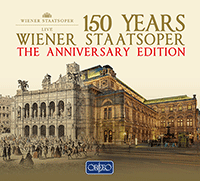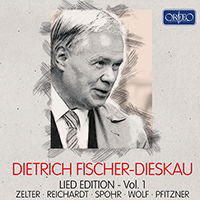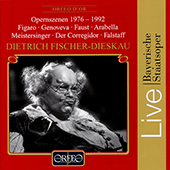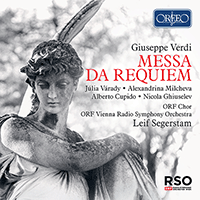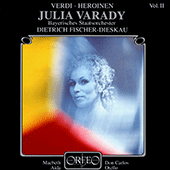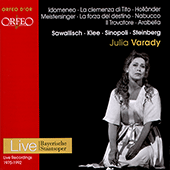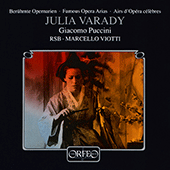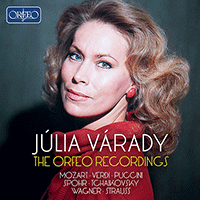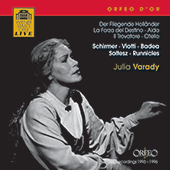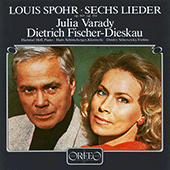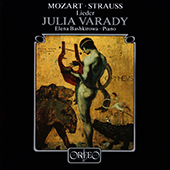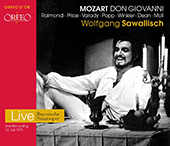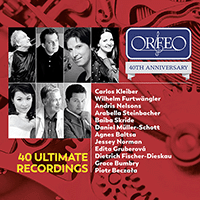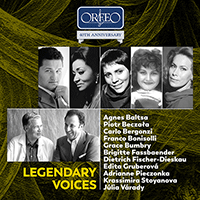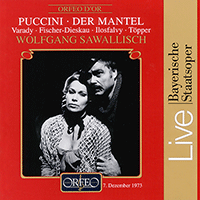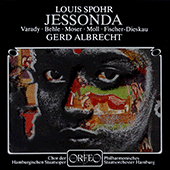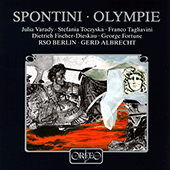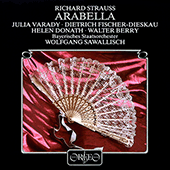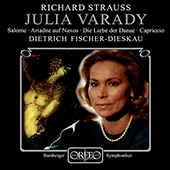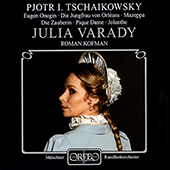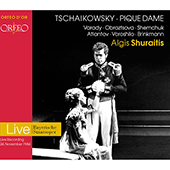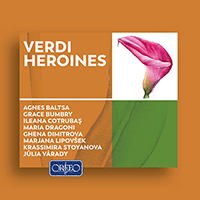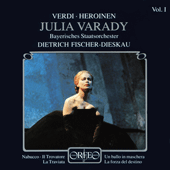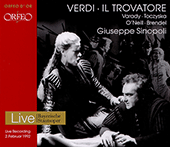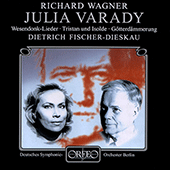Júlia Várady
Varady (real surname Tözser) was the child of a Hungarian father and a Transylvanian German mother. When she was six years old she began to have violin lessons at the Cluj Conservatory, four years later joining a youth orchestra. At fourteen, having discovered her voice, she began singing lessons: first with Emilia Popp at the Cluj Conservatory, then with Arta Florescu at the Bucharest Conservatory. Her operatic stage debut came in 1962 with the Cluj Opera. After singing small roles such as Kate Pinkerton / Madama Butterfly, Varady graduated to the lyric-dramatic repertoire, singing for example Fiordiligi / Così fan tutte, Liù / Turandot, Santuzza / Cavalleria rusticana, Desdemona / Otello, Susanna, the Countess and Cherubino / Le nozze di Figaro, Judith / Bluebeard’s Castle and the title role in Madama Butterfly. During this period she also sang as a guest with the opera companies of Bucharest and Budapest.
In 1970 Varady auditioned successfully for Christoph von Dohnányi at the Frankfurt Opera and after joining this company expanded her repertoire, for instance adding to it Marguerite / Faust, Donna Elvira / Don Giovanni, Antonia / Les Contes d’Hoffmann, Elisabetta / Don Carlo and the Young Maiden / Moses und Aron. She also sang elsewhere in Germany, enjoying particular success as Violetta / La traviata at Cologne and as Vitellia / La clemenza di Tito in 1972 with the Bavarian State Opera in Munich, after which she joined this company. Further new roles in Munich included Electra / Idomeneo, Senta / Der fliegende Holländer, Lady Macbeth / Macbeth, Leonora / La forza del destino and the title roles in Aida and Arabella. While singing Giorgetta / Il tabarro in 1973 she met the baritone Dietrich Fischer-Dieskau (cast as Michele) whom she subsequently married in 1977.
Throughout the later 1970s and the 1980s Varady developed a considerable international presence without severing her links to the German operatic system. She appeared at the Edinburgh Festival in 1974 with Scottish Opera in the title role of Gluck’s Alceste and made her debut at the Salzburg Festival in 1976 as Electra, returning as Vitellia (1977) and later as Donna Elvira (1987–1988). She appeared at the Metropolitan Opera, New York in the spring of 1978 as Donna Elvira. At the Deutsche Oper in Berlin she sang the Figaro Countess (1978), Aida (1982), Desdemona (1991) and Elisabeth / Tannhäuser (1992); as well as Sieglinde / Die Walküre on tour with this company in Japan in 1987, followed by Senta there in 1992. She first appeared at the Royal Opera House, London as Desdemona in 1987 and returned as Senta, one of her finest roles, in 1992. She sang Electra at La Scala, Milan, in 1984, Abigaille / Nabucco at the Paris Opera in 1995, and Leonore / Il trovatore at the Vienna State Opera in 1996. Throughout this period she also sang as a guest with the major German opera companies.
Although Varady was especially noted as an outstanding interpreter of the Verdi soprano roles, her overall repertoire was extremely large. This biography gives only a limited idea of her range, which extended from Micaëla / Carmen though Yaroslavna / Prince Igor to the Empress / Die Frau ohnen Schatten. She was also a notable exponent of the music of the German composer Aribert Reimann, creating the role of Cordelia to her husband’s Lear in Reimann’s King Lear (Munich, 1978) and participating in the first performance of Reimann’s Requiem in 1982. To all her parts she brought an unusually high degree of emotional intensity while at the same time preserving essential musical values.
Having retired from the operatic stage in 1996, Varady continued to sing in concert and taught at the Hochschule für Musik Hanns Eisler in Berlin.
© Naxos Rights International Ltd. — David Patmore (A–Z of Singers, Naxos 8.558097-100).








